
OR
#OPINION
The erosion of morality in Nepali politics
Published On: May 15, 2024 08:35 AM NPT By: Pawan Adhikari
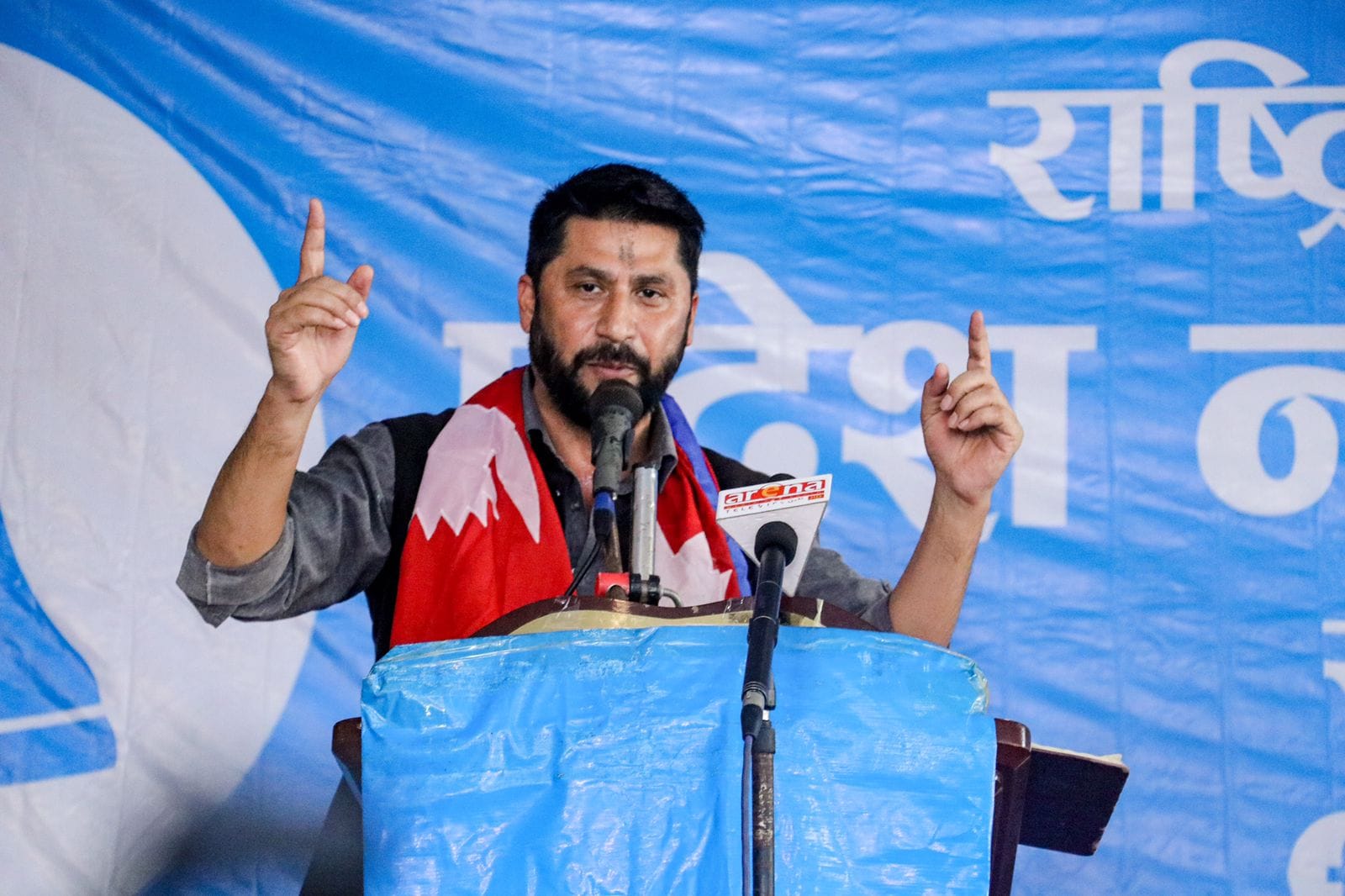
Pawan Adhikari
The author is Research Fellow at Centre for Social Innovation and Foreign Policy (CESIF Nepal)news@myrepublica.com
More from Author
Rabi Lamichhane’s uncontested position within the Rastriya Swatantra Party (RSP), despite several controversies surrounding him, reflects a deeply troubling trend in Nepal’s political culture – a systemic reluctance to hold leaders accountable for their alleged misconduct. Lamichhane’s rise was initially clouded by controversies surrounding his passport and citizenship. Now, the accusations of cooperative fraud and him being the home minister – leader of the ministry responsible for investigating frauds – suggests prioritizing personal ambitions over broader principles of accountability and transparency.
Despite the party's founding principles advocating for zero-tolerance against political misdemeanors and in favor of good governance, the RSP has refrained from initiating any meaningful inquiry into these allegations. Instead, they have categorically denied the formation of any committees and have blamed the media and opposition for “smearing” their party.
This inconsistency suggests a broader issue in Nepal's politics—the shielding of influential figures from scrutiny and accountability. The failure of the RSP, and indeed other traditional political entities, to address serious allegations against their leaders represents inconsistency and disregard for the principles they claim to uphold.
The situation begs the question: why does this pattern persist? It is indicative of a deeper malaise within Nepali political culture. Party loyalty often supersedes ethical considerations and the pursuit of justice. The phenomenon extends beyond party politics; it mirrors a broader reluctance within society to confront corruption and malpractice at all levels of governance.
Political Expediency Over Principle
Nepali political parties exhibit striking inconsistency, shifting stances on critical issues for short-term gains. For instance, the CPN (UML) party shut down parliament for months, demanding a high-level panel to investigate the gold smuggling case. Nepali Congress, then, vocally opposed the formation of such a committee, citing the importance of backing the pre-existing state mechanisms.
Now, the tide has turned. Nepali Congress advocates for a parliamentary committee to probe Lamichhane's alleged cooperative fraud, while CPN (UML) supports the existing mechanisms and criticizes the parliamentary probe. This opportunistic behavior undermines public trust in political parties' consistency and integrity, eroding faith in their principles and values.
Another example is the Bhutanese refugee scandal. Due to its sensitivity and implications, it initially gained significant public traction. However, the momentum noticeably slowed down when major political players became implicated or potentially affected by the investigations.
This shift underscores how political parties may use issues like accountability and transparency as bargaining tools to secure their self-interests. Parties might initially advocate for robust investigations into scandals to gain public favor or negotiate advantageous positions in coalition arrangements. However, the commitment to accountability often vanishes when the investigations start implicating influential figures within their own ranks.
This pattern is indicative of the broader trend in Nepali politics – parties prioritize self-interest and short-term gains over consistent principles or ideological stances. Their actions are shaped by calculations aimed at securing or maintaining power within the government.
Centralized Power and Fragmented Democracy
This volatile political environment is strengthened by the dominance of a select few leaders across party lines. They have considerable control over legislative and governance matters, holding sway over party politics, and their words carry the weight of sacred decrees. Parliament is usually left without business, and these leaders resort to backroom dealings and personal agendas.
Major political parties like UML, NC, and even the newer parties like the Janamat Party and RSP pertain to their survival and popularity with the central leadership. The opposition within the parties either doesn’t exist, or even if they do, the party leadership pushes them so far away that they’ve little to no say on discourses that matter.
Amidst this unstable political landscape, smaller parties with limited parliamentary representation also demand disproportionate prominence. Recently, parties with less than 5% of the total votes in the general election have sought prime ministerial, chief ministerial, or ministerial roles. This is a blatant disregard for democratic principles and political mandate. Politics has transformed into a battleground for personal ambition rather than public service.
Rise of Populism and Disregard for Legitimate Voices
Political leaders often use catchy slogans and exaggerated patriotism, like hypernationalism, to win support quickly. The legitimate discourse about identity and citizenship are often attributed to complex geopolitical issues and are termed as “division” and “anti-nationalism” elements.
They divert attention from important policy issues by pointing fingers at others with whataboutism. Often, even the locally elected representatives are seen to hog credit for the good and point fingers at others for lack thereof.
At the same time, some new political figures attack established institutions like the courts or bureaucracy. By undermining trust in these institutions, they create divisions and weaken the foundations of democracy. This rhetoric can be particularly dangerous in countries like Nepal, where democratic stability relies on strong institutions.
One of the most troubling consequences of this political decay is the systematic marginalization of dissenting voices at the grassroots level. After recent elections in Ilam, for example, there was a rush to declare the demise of identity politics, despite a significant portion of voters supporting identity-based candidates. This dismissive attitude towards nuanced political narratives stifles genuine democratic discourse, alienating diverse voices and perspectives.
The Cost of Political Demise
What does this decline in ethical governance and democratic values mean for Nepali society? As political discontent grows, so does frustration with conventional parties, causing disillusioned individuals to seek alternative options. The 2022 general polls were indicative of people’s desire for alternatives.
However, this disillusionment could take the form of support for fringe right-wing parties or calls for systemic change, as evidenced by the traction garnered by figures like Durga Parsai. In these times, it is crucial to remember the importance of democratic values and remain steadfast in our commitment to them.
At the same time, longing for an idealized past can lead people to overlook current problems and advocate for old systems, like a monarchy. This nostalgia can weaken faith in today's democracy and spread doubt about essential institutions like public services, the courts, police, and anti-corruption agencies. These institutions rely on public trust, which is declining due to political turmoil.
A Path Forward
Amidst this trajectory, the path forward becomes clear. Nepali society must reassert its commitment to democratic values, demanding accountability and transparency from its political leaders. Civil society organizations, media watchdogs, and citizens play a pivotal role in this endeavor. Their active engagement in holding power to account for and revitalize democratic discourse is not just a necessity but a duty.
The resurgence of ethical governance and democratic principles requires sustained civic engagement and a collective rejection of political expediency. As conscientious citizens, we can restore trust in institutions and promote inclusive governance. Together, we can steer Nepal away from the brink of political dissolution towards a more resilient and equitable future.
You May Like This

No one can stop RSP from forming one-party govt: Rabi Lamichhane
KATHMANDU, April 4: Rabi Lamichhane, chairman of Rastriya Swatantra Party (RSP), has claimed that no one can stop his party... Read More...

RSP Chairman Lamichhane warns of quitting govt if the party is denied home ministry
KATHMANDU, Jan 21: Rastriya Swatantra Party (RSP) Chairman Rabi Lamichhane has warned that his party would quit the government if... Read More...

Police investigating Rabi Lamichhane's citizenship and passport
KATHMANDU, Dec 2: The police have started an investigation into the citizenship dispute of Rabi Lamichhane, the chairman of the... Read More...

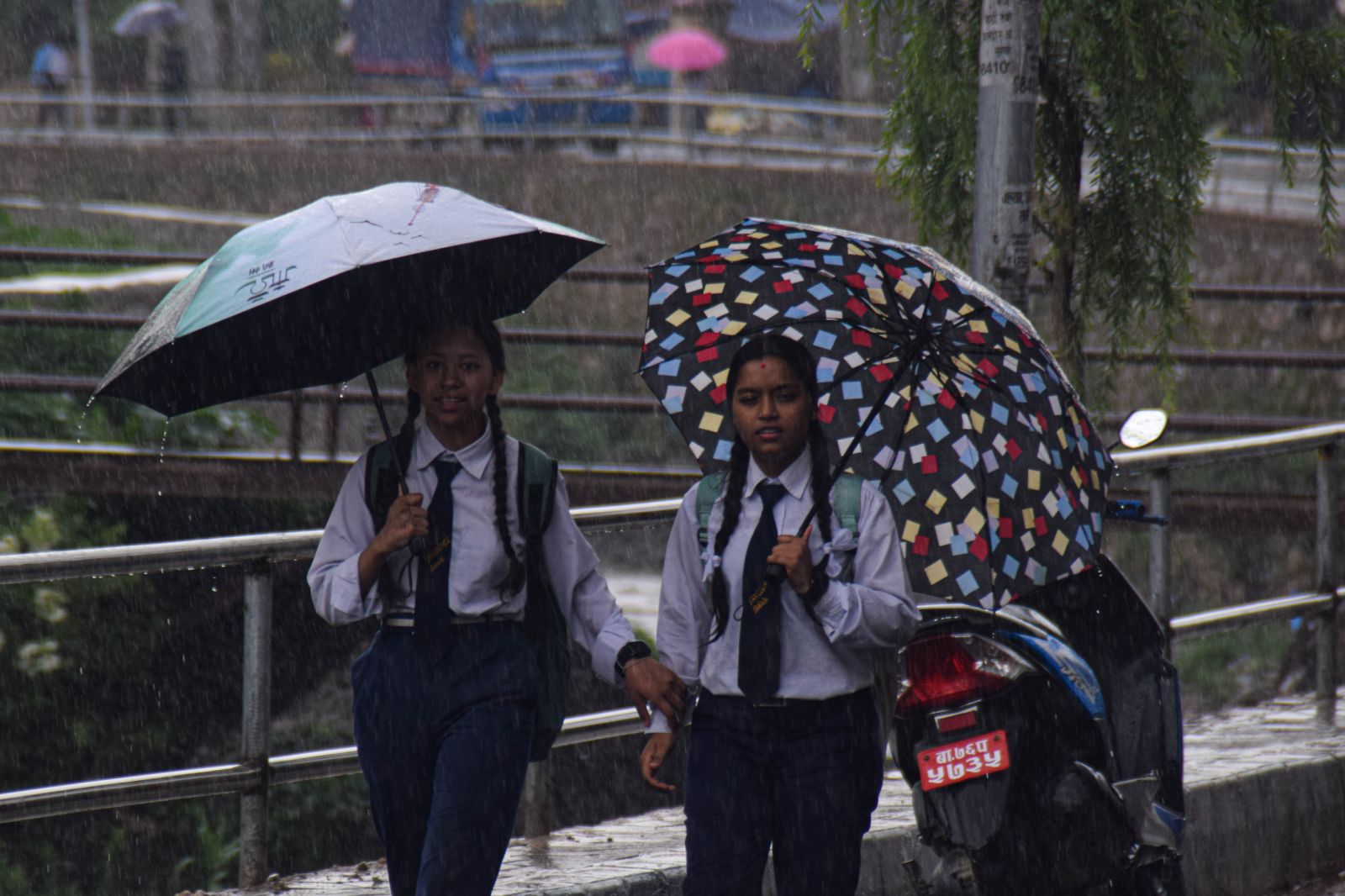


Just In
- Dodhara-Chandani Dry Port construction: Primary work begins
- Narayanghat-Mugling road: Landslide risks identified in 25 areas
- SAARC Secretary General calls on Sri Lankan President
- KMC rescues four child laborers from inside Singha Durbar
- Gold price remains stagnant
- Nepal govt, private sector taking initiatives for daily Dhaka-Pokhara flights
- Int’l Tourism Fair to begin from June 15 at Bhrikutimandap
- CIAA demands immediate probe into MPs and officials with foreign citizenship



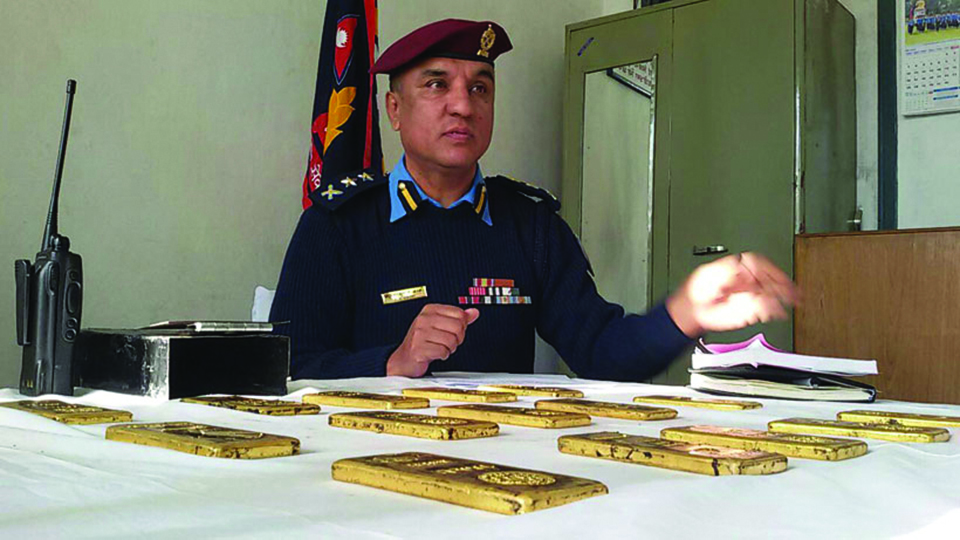
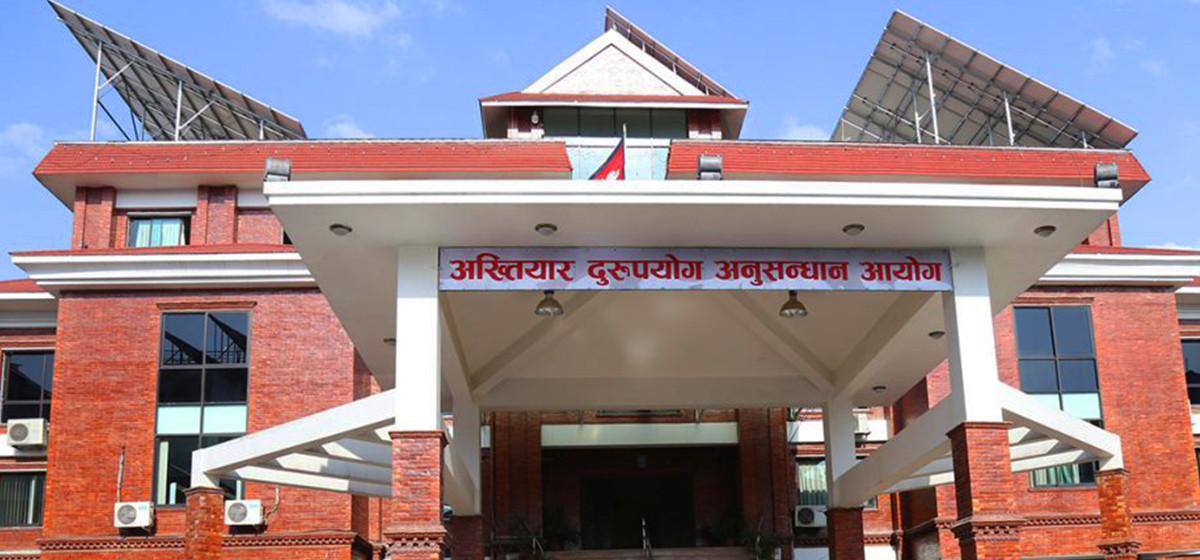
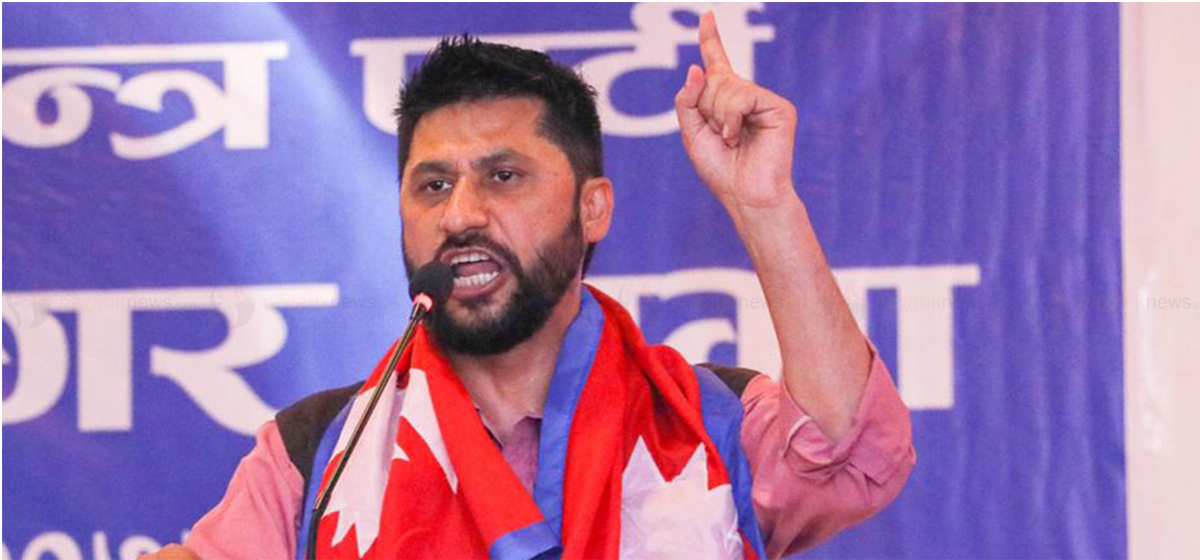
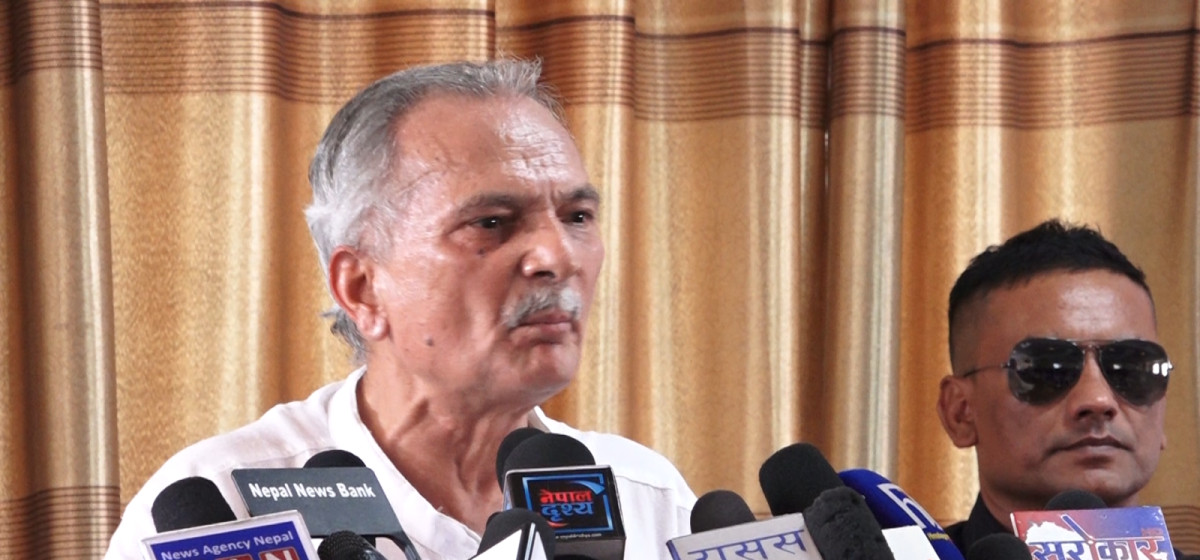



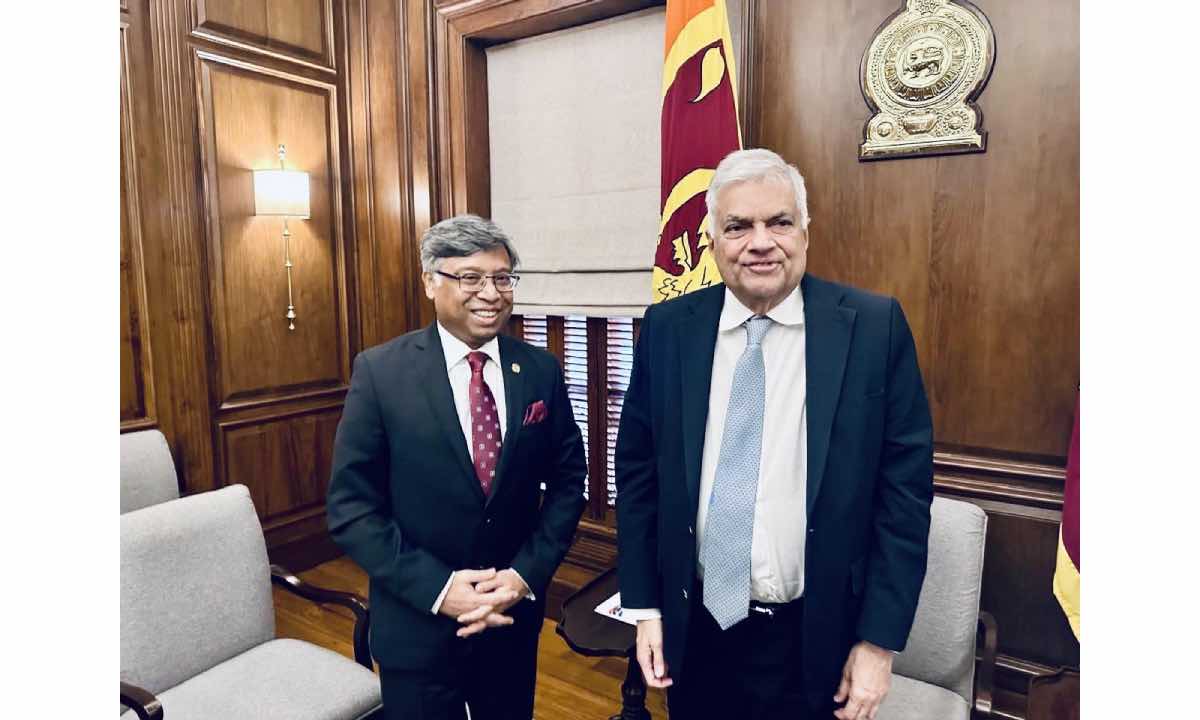
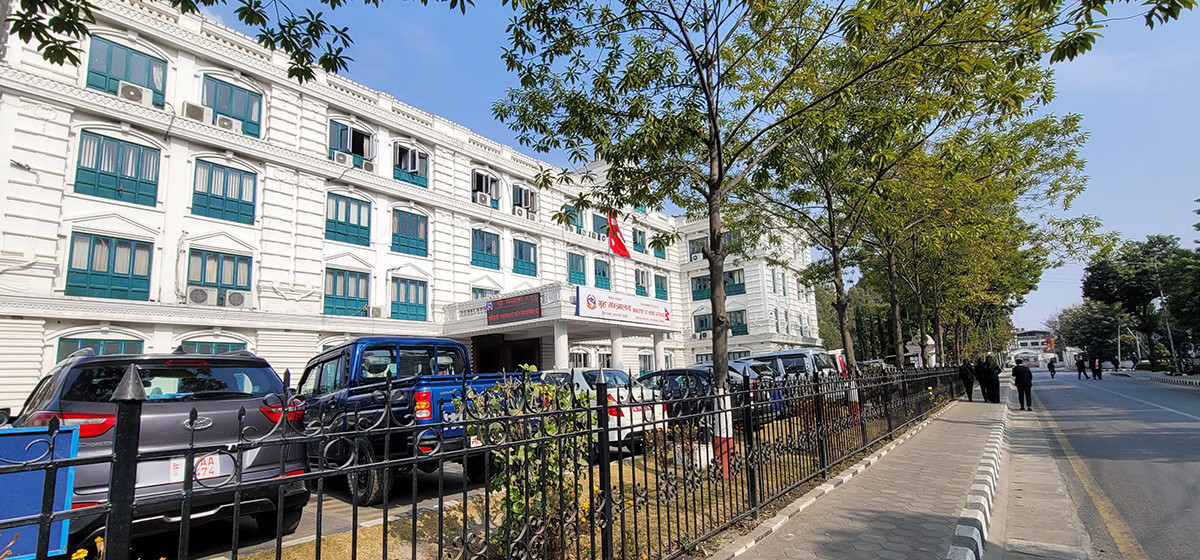
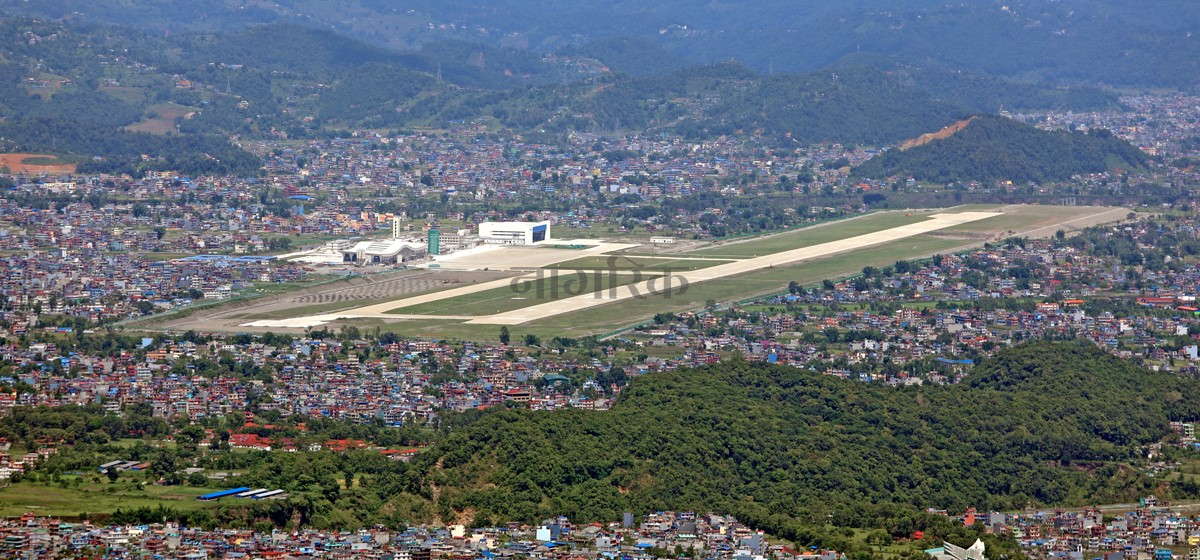

Leave A Comment